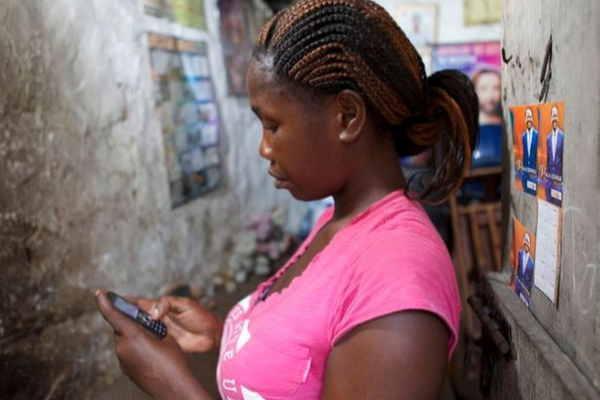When the proposed communication tax bill becomes law, consumers of telecommunication services will need to pay an additional N9 for every N100 recharge card or an extra N90 for every N1,000 data plan.
Importantly, the push to include more than 40 million Nigerians that are financially excluded is likely to lose steam as many poor people will willfully deny themselves access because of the added cost of communication.
The communication tax bill, a brainchild of former senate leader, Ali Ndume, Chairman Senate Committee on Army, is being proposed as a substitute for the planned 7.5 percent increase in Value Added Tax (VAT) by the federal government of Nigeria. President Buhari during his 2020 budget presentation clarified that the VAT increase affects only businesses with N20 million turnover and not small businesses.
The Central Bank of Nigeria (CBN) and its partnering institutions which include commercial banks, fintech companies, and nonprofit organizations, are betting on the country’s very impressive mobile penetration number at about 173 million mobile lines to widen financial inclusion net. The CBN has a deadline of 2020 to reach 80 million people, but with the tax bill becoming law the apex bank could miss its target.
“Another ill-timed and poorly conceived tax just like the new Police Fund Levy,” said Taiwo Oyedele, partner and West Africa Tax Leader at PricewaterhouseCoopers (PwC).” Hopefully, these events will be a wake-up call for Nigerians to start asking questions about tax during elections as is the case in other climes.”
The communication tax bill plans to impose and collect communication services tax (CST or levy) on charges payable by consumers of electronic communication services in Nigeria (excluding private electronic communication services) at the rate of 9 percent.
Electronic communication services that fall under the levy include voice calls, SMS, MMS, data usage (both from telecommunication services providers and internet service providers), pay per view TV stations, etc.
For instance, an SMS which previously cost N4 comes at an extra charge N4.90. A DSTV compact option previously sold at N6900 will then cost N7,521 with N621 being the extra 9 percent charge going to the government.
In 2018, Nigerians spent 114 billion minutes on calls valued at N2.7 trillion. The total value of text messages in the same year was at N39 billion while N68 billion went to data plan purchase according to data from the Nigerian Communications Commission (NCC). Using the 2018 sector numbers, the federal government is likely to rake in N260 billion from the proposed communication tax.
The tax is to be paid together with the electronic communication service charge payable to the service provider by the user of the service. The FIRS is the agency responsible for collecting the tax from service providers and remitting it to the federation account.
It is also payable whether or not the person making the supply is permitted or authorised to provide electronic communications services.
Penalty for failure to file returns on or before the due date to FIRS is N50,000 and an additional N10,000 for each day the returns are not submitted.
“The 9 percent tax will reduce the number of subscribers. Add SARS, multiple taxes, lack of infrastructure, etc, and you kill one of the few sectors that offer an alternative path to oil,” said Gbenga Sesan, executive director of Paradigm Initiative. “Why not grow the sector to earn from corporate taxes, and income taxes that come with new jobs?”
When passed by a two-thirds majority of the National Assembly and assented to by the President, the communication tax will be adding to the already existing transaction charges that consumers have to pay. One of them is the N50 Stamp Duty imposed on every Point of Sale (POS) transaction above N1,000.
Currently, all electronic fund transfer cost N50 whereas USSD also comes with different charges. When initiating a transaction via USSD, every process is charged by the network provider. Depending on how many steps required to complete the transaction, users can pay as much as N50. Banks like Access Bank charge N84 for fund transfer to other banks and the user must have airtime to initiate a USSD transaction.
The bill titled ‘Communication Tax Bill 2019 (SB.12) has passed the first reading at Senate plenary last week on Wednesday. It is expected to go for a second reading.

However, the Association of Telecommunications Companies of Nigeria (ATCON) and the Association of Licensed Telecommunications Operators of Nigeria (ALTON) have both condemned the bill.
“If the passage of this bill goes through, it would negatively impact Nigerians and foreigners that use these services,” Olusola Teniola, president of ATCON said in a statement. “The implementation of this CST bill would take the affordability of data services out of the reach of the citizenry.”
Source: Businessdayng




